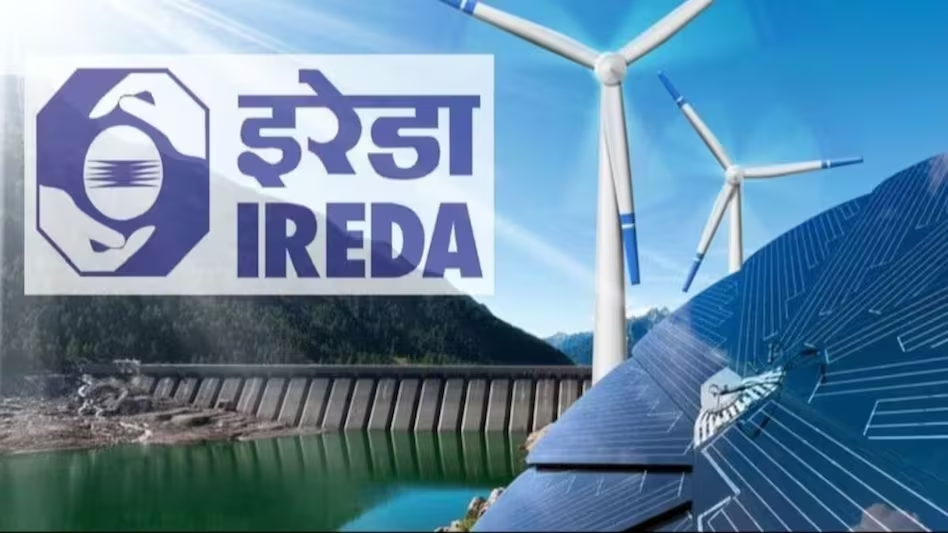Introduction: The Function of IREDA in India’s Renewable Energy Environment
Financing and promoting renewable energy projects in India is a major function of the Indian Renewable Energy Development Agency (IREDA), a government-owned non-banking financial company (NBFC). Investors and analysts are paying close attention to IREDA’s stock fluctuations and financial performance as the country focuses more on sustainable energy.
Recent Performance of the Share Price
The price of IREDA’s shares as of May 14, 2025, is ₹166.35, a significant drop of over 45% from the company’s peak of ₹310 on July 15, 2024. Investors are talking about the stock’s future direction and possible comeback as a result of this decline.
Financial Highlights: Performance in Q4 of FY25
IREDA reported a total net profit of ₹502 crore in the fourth quarter of fiscal year 2025, which is a 49% increase from the previous year. The business’s overall operating revenue increased by 37% to ₹1,905 crore. Furthermore, IREDA’s outstanding loan book increased by 28% annually to ₹76,282 crore. The company’s outstanding operational performance in the face of a difficult market climate is highlighted by these impressive financial results.
Metrics for Market Capitalization and Valuation
The market capitalization of IREDA is currently about ₹44,765 crore. The price-to-book (P/B) ratio is 4.37 and the price-to-earnings (P/E) ratio is 26.4 for the stock. The business has a return on capital employed (ROCE) of 9.57% and a return on equity (ROE) of 18.0%. These indicators point to a strong financial base, but the high P/E ratio raises the possibility that the company is overpriced in relation to its earnings.
Technical Evaluation: Levels of Support and Resistance
For IREDA’s stock, technical analysts have determined important levels of support and resistance. A breakout above the stock’s minor resistance level of ₹174 might lead to a short-term objective of ₹184. On the other hand, ₹160 is a support level that may be breached to indicate further downside possibilities. It is recommended that investors keep a careful eye on these levels in order to make wise trading choices.
Beta and Share Price Volatility
With a beta of 1.49, IREDA’s stock shows greater volatility than the overall market. Because of this increased sensitivity, the stock may see more notable price fluctuations in reaction to changes in the market, therefore risk-averse investors should exercise caution.
Price Targets and Analyst Suggestions
Diverse price estimates for IREDA’s shares have been offered by analysts. If resistance levels are successfully broken, some projections indicate a possible short-term upside to ₹184. With forecasts ranging from ₹485 by the end of 2025 to ₹1,110 by 2030, the long-term projections are more optimistic and demonstrate confidence in IREDA’s growth potential within the renewable energy sector.
Risks and Opportunities in Investment Considerations
Hazards:
Market Volatility: The high beta of the stock suggests that it is vulnerable to changes in the market, which may have an effect on investor returns.
Regulatory Changes: IREDA’s activities are susceptible to regulatory changes that could have an impact on its financial performance because it is a government-owned organization.
Interest Rate Sensitivity: Because IREDA is a financial organization, changes in interest rates have an impact on its profitability and may have an impact on its lending margins.
Prospects:
Growth of Renewable Energy: India’s determination to increase its capacity for renewable energy offers substantial growth prospects for
Government Support: IREDA’s economic prospects may be enhanced by policy measures that support sustainable energy.
Diversification: By distributing its loan portfolio throughout different renewable energy sectors, IREDA may be able to increase its sources of income.
Future Prospects and Strategic Initiatives
In order to finance its expansion objectives, IREDA intends to raise ₹30,000 crore in fiscal year 2025 through a combination of debt and equity. In line with India’s aggressive goals for sustainable energy growth, the company seeks to take advantage of the rising demand for funding for renewable energy. It is anticipated that these calculated actions would improve IREDA’s standing in the market and increase long-term shareholder value.
Conclusion: Handling IREDA Investment Decisions
An appealing investment story is presented by IREDA’s solid financial results and strategic placement in the renewable energy industry. Nonetheless, a balanced strategy is required due to the stock’s recent price volatility and market concerns. When assessing IREDA as a possible addition to their portfolios, investors should take into account their investing horizon, risk tolerance, and the overall market environment. Making wise investment decisions will require constant observation of the market trends, policy changes, and the company’s financial standing.

